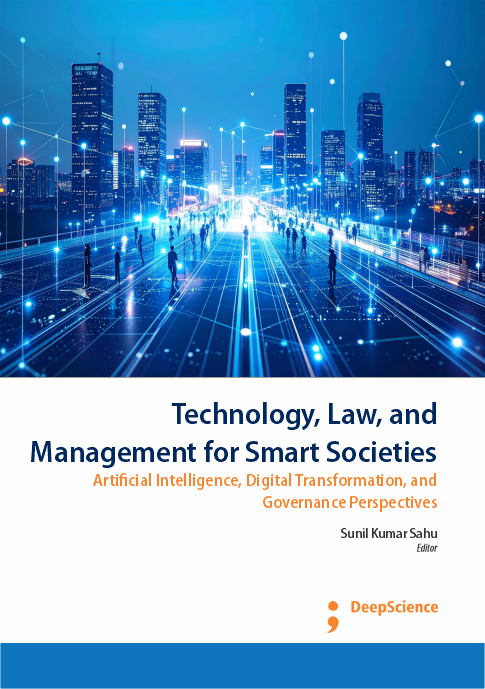Technology, Law, and Management for Smart Societies: Artificial Intelligence, Digital Transformation, and Governance Perspectives
Keywords:
Artificial Intelligence, Sustainability, Smart Societies, Digital Transformation, Governance, Cybersecurity, Big Data AnalyticsSynopsis
This book discusses how new scientific research can advance technology in the field of emerging digital technologies that reshape innovation theory. We are moving towards an AI-driven, automated world which is partially being driven by the access to data and data-facilitated governance Intersectionality in these drivers of transformation becomes critical for ethical innovation, societal resilience and inclusive growth. In addition to contributions from the perspectives of technology, law and management, this edited volume presents an interdisciplinary dialogue on selected themes which include innovation, classic paradigms and new trends in the area(s) of investment services/markets/community banking convergence. It offers important ideas on AI governance, cybersecurity, data protection laws, smart city development, business adaptability and agility and sustainable leadership. As a whole, the chapters in this book provide evidence of what needs to be done: policies, ethics, and managerial innovation are tools that need to be used so that technology is developed for good and responsibly. Catered to scholars, stakeholders, policy makers, industry and academia in general, the book bridges theory with practice: it suggests potential avenues for the provision of technology-facilitated governance and management processes that foster transparency, accountability and social good. The book itself intends to anticipate the future, about humans’ values and intelligent systems co-evolving to build a smart, fairer, just and sustainable society.
References
Bosco, G., Riccardi, V., Sciarrone, A., D’Amore, R., & Visvizi, A. (2024). AI-driven innovation in smart city governance: achieving human-centric and sustainable outcomes. Transforming Government: People, Process and Policy. https://doi.org/10.1108/TG-04-2024-0096
Camilleri, M. A. (2024). Artificial intelligence governance: Ethical considerations and implications for social responsibility. Expert Systems, 41(7). https://doi.org/10.1111/exsy.13406
Couture, V., Roy, M.-C., Dez, E., Laperle, S., & Bélisle-Pipon, J.-C. (2023). Ethical implications of artificial intelligence in population health and the public’s role in its governance: perspectives from a citizen and expert panel. Journal of Medical Internet Research, 25, e44357. https://doi.org/10.2196/44357
de Almeida, P. G. R., dos Santos, C. D., & Farias, J. S. (2021a). Artificial intelligence regulation: a framework for governance. Ethics and Information Technology, 23, 505–525. https://doi.org/10.1007/s10676-021-09593-z
de Almeida, P. G. R., dos Santos, C. D., & Farias, J. S. (2021b). Artificial intelligence regulation: a framework for governance. Ethics and Information Technology, 23, 505–525. https://doi.org/10.1007/s10676-021-09593-z
Ghosh, A., Saini, A., & Barad, H. (2025). Artificial intelligence in governance: recent trends, risks, challenges, innovative frameworks and future directions. AI & SOCIETY. https://doi.org/10.1007/s00146-025-02312-y














